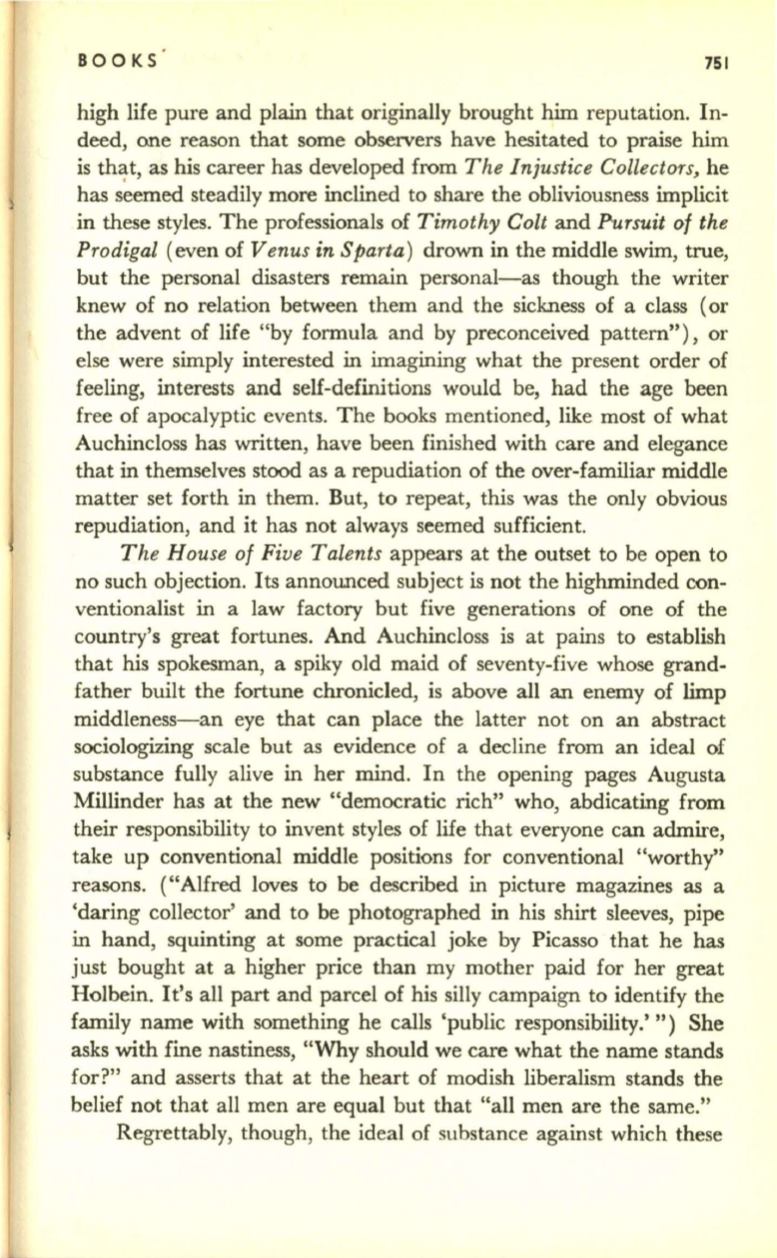
BOO KS
751
high life pure and plain that originally brought him reputation. In–
deed, one reason that some observers have hesitated to praise
him
is that, as his career has developed from
The Injustice Collectors,
he
has
s~emed
steadily more inclined to share the obliviousness implicit
in these styles. The professionals of
Timothy Colt
and
Pursuit of the
Prodigal
(even of
Venus in Sparta)
drown in the middle swim, true,
but the personal disasters remain personal-as though the writer
knew of no relation between them and the sickness of a class (or
the advent of life "by formula and by preconceived pattern"), or
else were simply interested in imagining what the present order of
feeling, interests and self-definitions would be, had the age been
free of apocalyptic events. The books mentioned, like most of what
Auchincloss has written, have been finished with care and elegance
that in themselves stood as a repudiation of the over-familiar middle
matter set forth in them. But, to repeat, this was the only obvious
repudiation, and it has not always seemed sufficient.
The House of Five Talents
appears at the outset to be open to
no such objection. Its announced subject is not the highminded con–
ventionalist in a law factory but five generations of one of the
country's great fortunes. And Auchincloss is at pains to establish
that his spokesman, a spiky old maid of seventy-five whose grand–
father built the fortune chronicled, is above all an enemy of limp
middleness-an eye that can place the latter not on an abstract
sociologizing scale but as evidence of a decline from an ideal of
substance fully alive in her mind. In the opening pages Augusta
Millinder has at the new "democratic rich" who, abdicating from
their responsibility to invent styles of life that everyone can admire,
take up conventional middle positions for conventional "worthy"
reasons. ("Alfred loves to be described in picture magazines as a
'daring collector' and to be photographed in his shirt sleeves, pipe
in hand, squinting at some practical joke by Picasso that he has
just bought at a higher price than my mother paid for her great
Holbein. It's all part and parcel of his silly campaign to identify the
family name with something he calls 'public responsibility.''') She
asks with fine nastiness, "Why should we care what the name stands
for?" and asserts that at the heart of modish liberalism stands the
belief not that all men are equal but that "all men are the same."
Regrettably, though, the ideal of substance against which these


